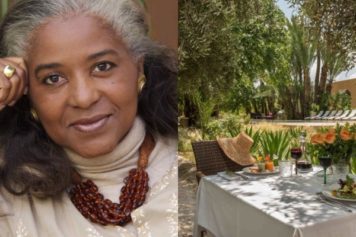Recently, approximately 1,500 Palestinian prisoners ended a 40-day hunger strike to protest against unjust and horrific prison conditions in Israeli prisons and jails. After receiving international coverage the Israeli government made an agreement with the strikers to improve conditions.
But while the hunger strike by Palestinian political prisoners has been called off, with the Palestinians declaring victory, the use of the hunger strike to bring attention to colonial conditions is being ignored in other places in the world. Moroccan prisons filled by Western Saharan (Sahrawi) political prisoners have been invisible to the international public.
Sahrawi political prisoners have periodically engaged in hunger strikes to protest the abysmal conditions they face in Moroccan prisons. Protesters against Morocco’s illegal occupation of most of the Western Sahara regularly encounter repression carried out by Moroccan security forces. This includes but is not limited to imprisonment.
Since April 2017, hunger strikes have been initiated by at least 14 political prisoners challenging the conditions they face. Yet, there is little to no media attention paid to either the conditions or the resistance.
While Twitter has become an important instrument in disseminating information about the Sahrawi struggle against the Moroccan government, it is insufficient to gain the attention of the global public. Hunger strikes, no matter how compelling, cannot influence public opinion if nobody knows about them. The reality, at least with regard to the Western Sahara and the people of the U.S., is that most of us here don’t even know where the Western Sahara is located, let alone anything about the condition of Sahrawi political prisoners.
The struggle for freedom on the part of Africa’s only remaining colony —ironically, a colony of another African nation — deserves global support. But in order for that to happen, an immense amount of education must happen to awaken the Black world to what is happening [THIS PHRASING IS AWKWARD. DONE BY WHOM?] and the conditions being faced not only in the prisons but in the occupied territories as a whole.
Silence in the face of the Moroccan occupation is to the benefit of the oppressor. Those in the U.S. who are unaware of that struggle cannot be held responsible for such an absence of knowledge. Thus, we should learn the lessons from countless other solidarity movements Black America has engaged in, such as against Portuguese colonialism and white minority rule in Southern Africa (1960s-1970s). We must begin to protest and boycott Moroccan industries, create awareness of the conditions faced by the Sahrawi people and force the US government and other Moroccan allies to pressure the government to end its military occupation. The time has certainly arrived for a similar such movement in support of freedom for the Western Sahara.
—————————————————–
Bill Fletcher Jr. is the former president of TransAfrica Forum. Follow him on Twitter, Facebook and at www.billfletcherjr.com.


